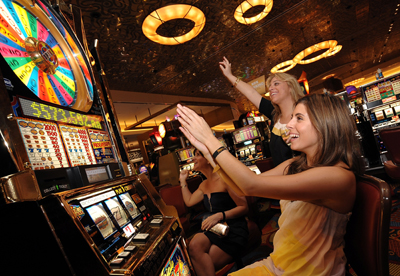
In the world of gambling, where chance and strategy converge, a unique tapestry of beliefs manifests—one that intertwines luck, fate, and the enigmatic nature of casino games. Casinos, bustling with excitement and anticipation, are not just venues for placing bets; they are also arenas where superstitions thrive. Ranging from the novice player to the seasoned gambler, these mysterious practices often shape how individuals approach the games they play, holding the belief that their actions can impact the outcome in ways that go beyond mere probability.
When players gather around roulette wheels, blackjack tables, and slot machines, the atmosphere is thick with stories of lucky charms, rituals, and codified behavior that defy logic yet provide a sense of comfort. Whether it’s wearing a specific outfit, following a particular sequence of bets, or even avoiding certain numbers, the attachment to various superstitions reflects a deep-rooted desire to manipulate the uncontrollable. bensu4d This article delves into the captivating world of casino game superstitions, exploring the beliefs that both entertain and mystify those who dare to play.
Cultural Origins of Superstitions
Casino games have long been entwined with an host of superstitions that can be traced to primitive societies. The origins of these notions can be linked to humanity’s innate desire to manage the unpredictable outcomes connected with chance and randomness. In ancient civilizations, activities of uncertainty were often tied to religious practices. Gamblers would seek aid or request favor from gods, believing that their actions could affect the outcomes in their benefit. This basis laid the basis for the variety of superstitions that developed as casino games evolved over centuries.
During the medieval age, betting became a popular hobby across the continent, and with it, a diverse tapestry of superstitions appeared. Players adopted different rituals and charms, believing they could change the outcome of games. The importance of digits, in particular, started to manifest in superstitions related to card games and dice. The number seven was often considered auspicious, while different numbers carried unfortunate connotations. These notions mirrored the cultural contexts of the time, changing as they moved through generations and changed to new gaming environments.
As gambling houses emerged in the seventeenth century, particularly in Italy and France, the atmosphere surrounding betting became saturated in mystique. The growing accessibility of casino games allowed for the expansion and variation of superstitions among players. Concepts like fortunate charms, designated seating locations, and rituals gained importance, creating a special culture within casinos. As these customs continued to thrive, they became essential to the character of casino activities, illustrating how the past and tradition shape the convictions that influence how participants interact with luck.
Popular Casino Superstitions
Beliefs surrounding gambling activities are abundant and diverse, reflecting the hopes and anxieties of players as they participate in chance-based games. One of the most common beliefs is that certain digits bring luck or bad luck. For example, the digit seven is often seen as a lucky number, frequently sought after by gamblers looking for a favorable outcome. Conversely, the number thirteen is routinely considered unlucky, leading many players to avoid it during their gambling sessions.
Another common belief relates to rituals that gamblers believe can affect their chances. Whether blowing on dice before a throw, using a specific gesture to place a wager, or even wearing particular items of clothing, many individuals feel that these rituals can sway fate in their favor. These rituals offer a sense of power in an otherwise random environment, reinforcing the idea that luck can be manufactured through individual beliefs and habits.
Lastly, the ambiance and atmosphere of the casino itself contributes to myths. Many players suggest that the presence of specific icons, such as four-leaf clovers or fortunate tokens, can enhance their chances of winning. Additionally, players might adhere to the belief that winning streaks can be halted by mundane events, such as someone passing by or a spill at the table. The collective environment in a casino can amplify these superstitions, creating a shared culture of myths that transcends individual experiences.
Impact of Superstitions on Players
Beliefs play a crucial role in the mindset of casino players, often affecting their behavior and decision-making. A lot of gamblers believe that fortune can be manipulated through various rituals, such as donning a talisman, choosing particular hues, or avoiding certain numbers. This reliance on superstitions can create a sense of authority in an environment that is intrinsically unpredictable. Players frequently feel more self-assured and involved when they feel that their actions could sway the result of a game in their advantage.
The impact of these superstitions extends past individual players, affecting the general atmosphere within the casino. For instance, a player who believes in the luck of a certain slot machine might attract a crowd, as onlookers are fascinated by their apparent success. This shared belief can amplify excitement and create a dynamic environment, leading to an captivating experience even for those who may not necessarily be superstitious. The excitement around specific games can lead to increased participation and longer playing sessions, supporting the casino’s lively social scene.
In some cases, superstitions can lead to harmful effects for players. Relying too much on rituals can result in poor gambling decisions, as some may ignore basic strategies in favor of unfounded beliefs. Additionally, the pressure to perform rituals may heighten anxiety and tension, diminishing from the pleasure of the experience. Ultimately, while superstitions can enhance the thrill of playing casino games, they can also lead to unwise choices that overshadow the fun and entertainment intended in the casino experience.